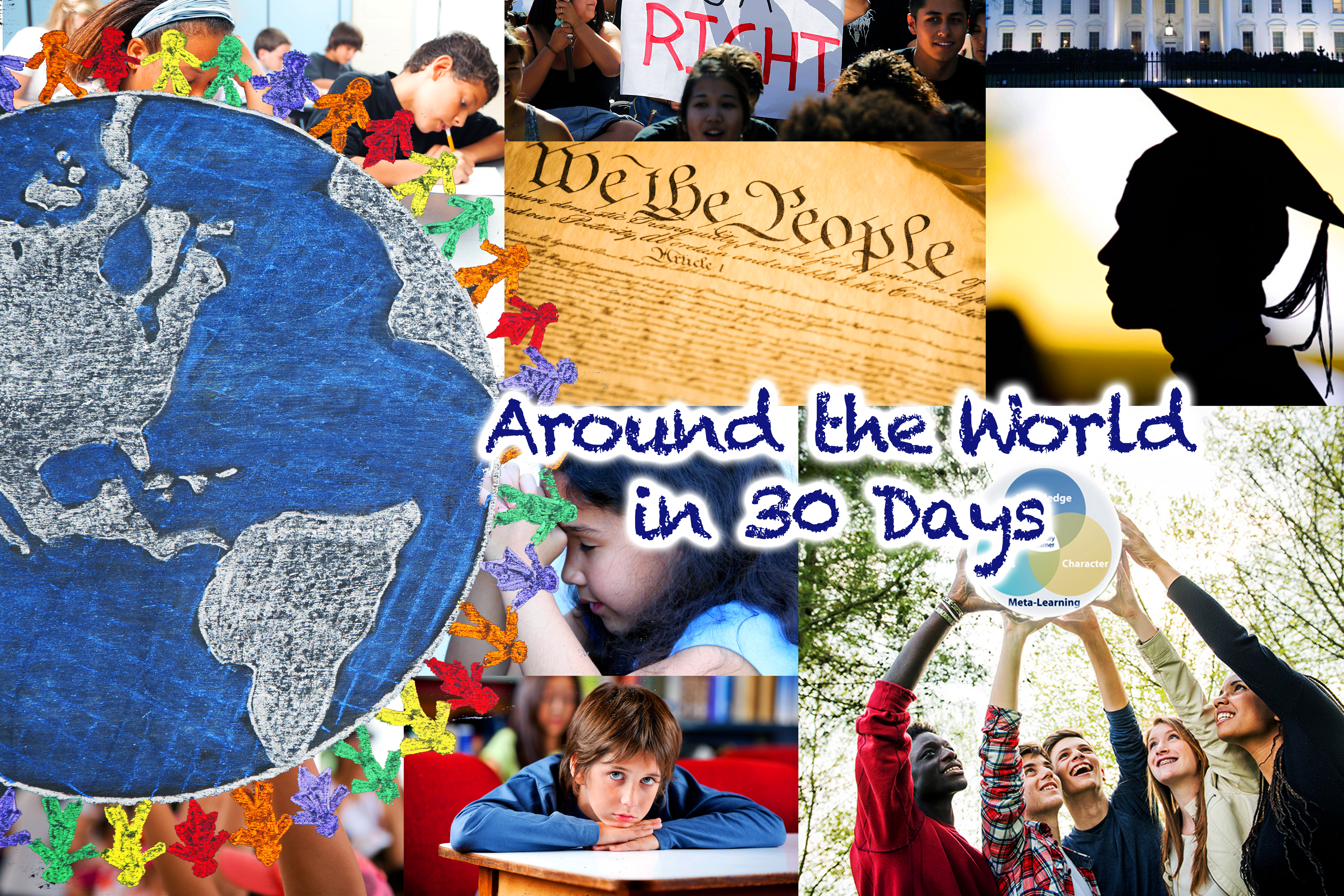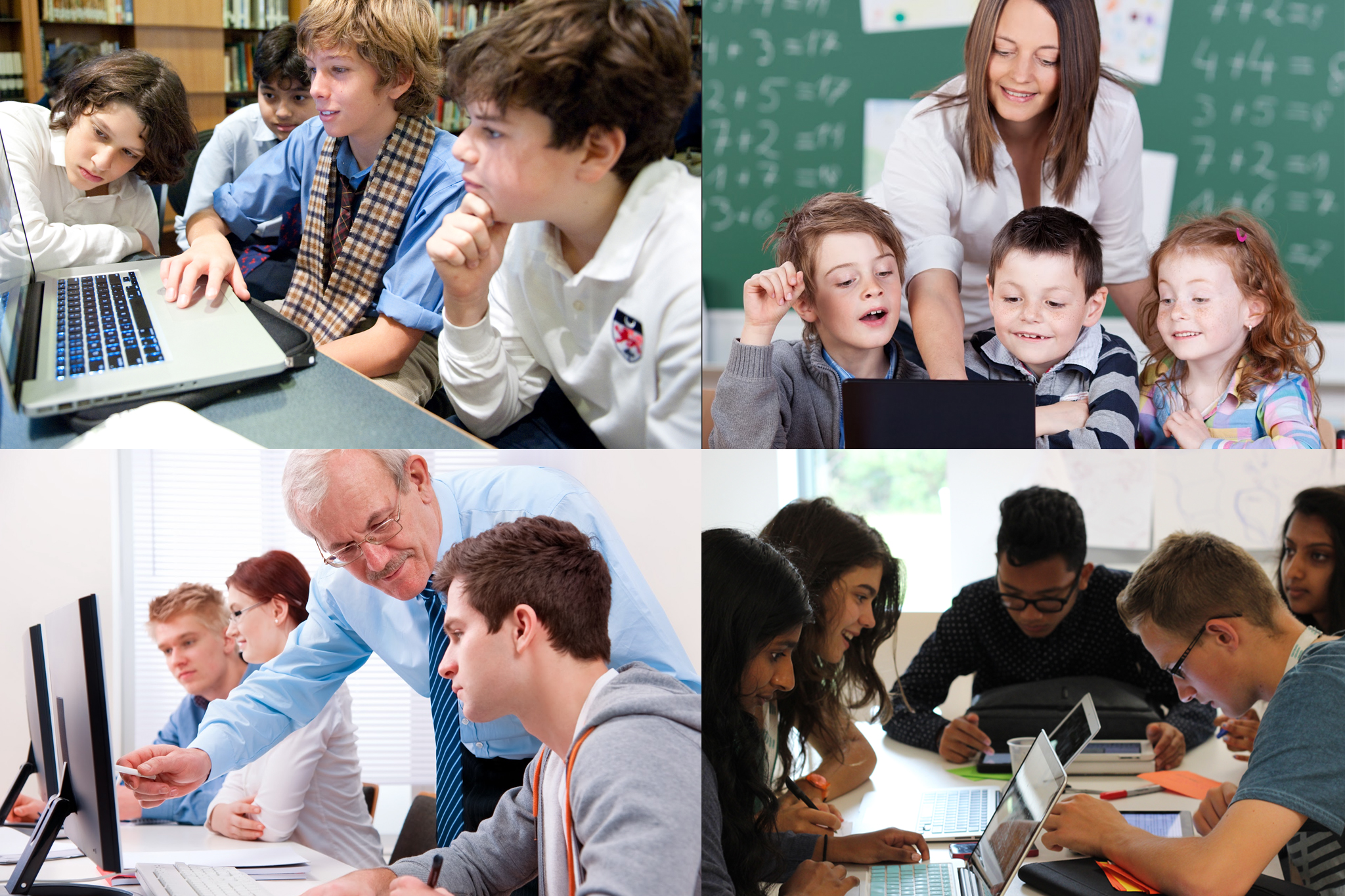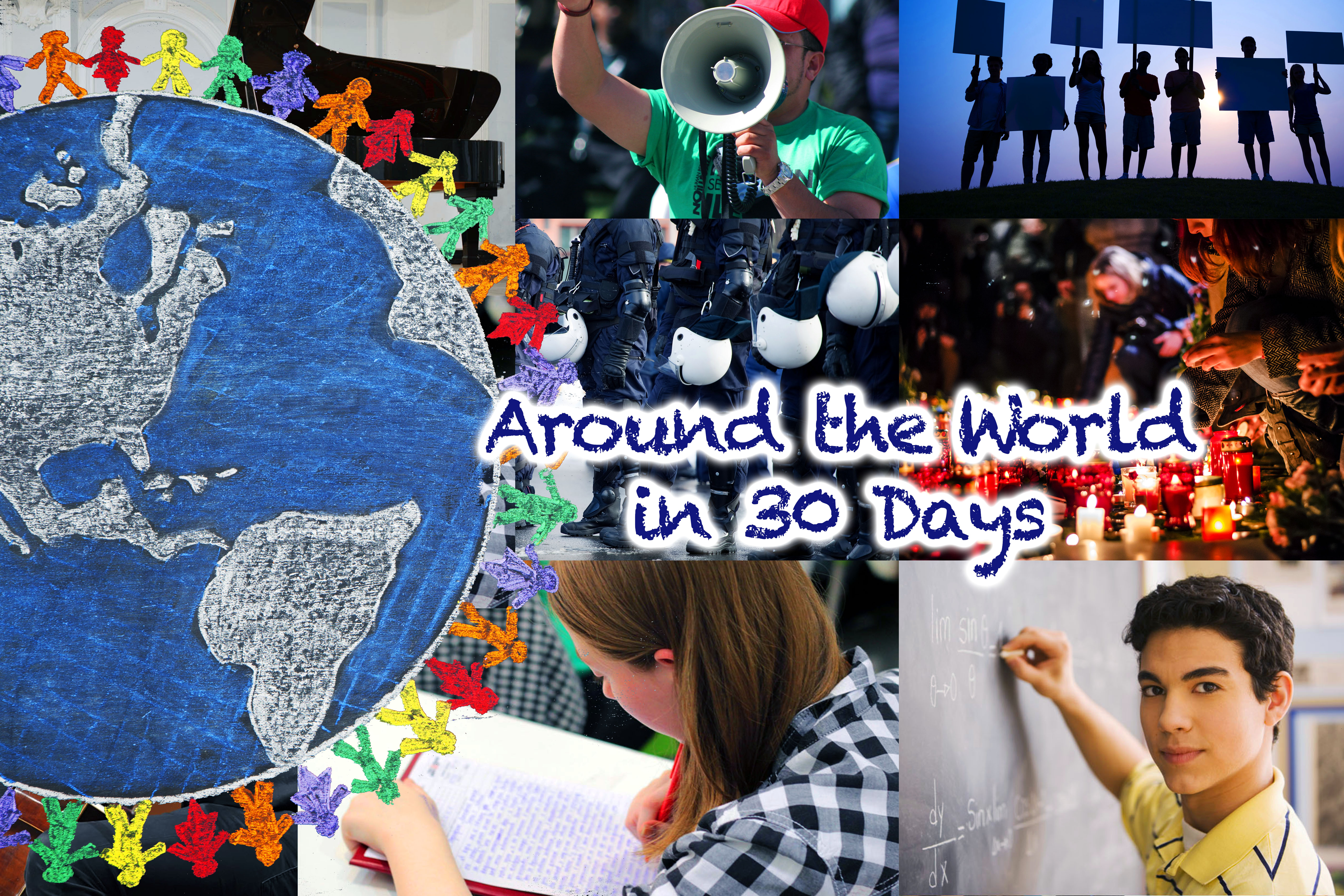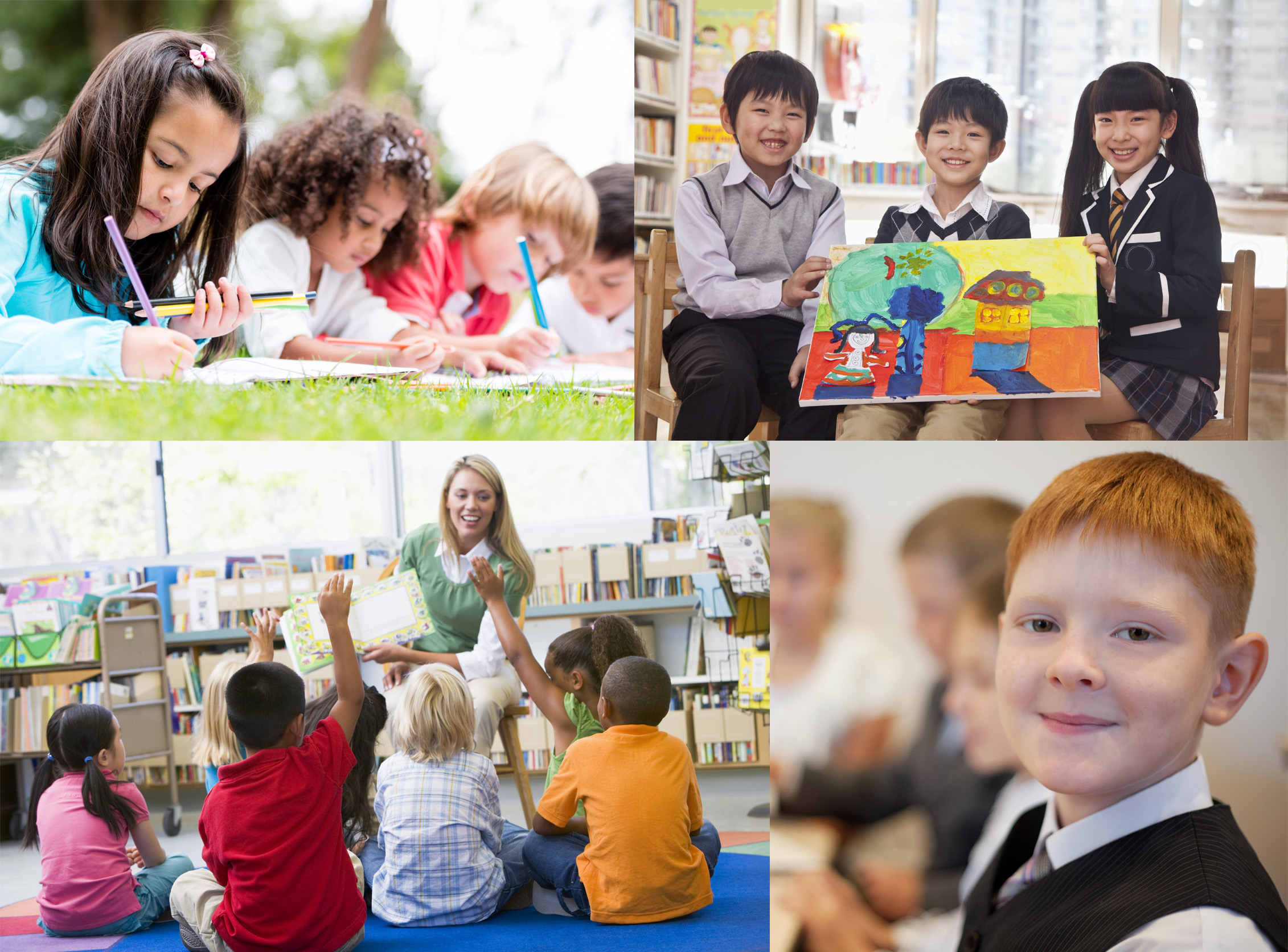
Children are Listening. We live in a world of infinite connectivity, and following a “global” event such as the recent US Election 2016 (the world’s No. 1 economy), many parents and other adults say they are still struggling with what to say and share with children and what not to say. Children around the world witnessed the often aggressive tone of the election’s rhetoric, and indeed, teachers across the United States have acknowledged that many classrooms are still full of anxiety and concerns. In an age of widespread digital technologies, it is virtually impossible to entirely buffer children from the constant messaging. How should educators support children in uncertain times?
Our Global Teacher Bloggers are pioneers and innovators in fields such as technology integration, mathematics coaching, special needs education, science instruction, and gender equity. They have founded schools, written curricula, and led classrooms in 13 different countries that stretch across every populated continent on earth. These teachers empower and enrich the lives of young people from nearly every background imaginable.
Today in The Global Search for Education, our Top Global Teacher Bloggers share their answers to this month’s question: How do you as teachers support children who are confused or frightened by events going on in their world?
“There has been much negative talk about Mexicans,” writes Elisa Guerra (@ElisaGuerraCruz) who teaches in Mexico. “Shouting insults back to those who insult us will not make much to dismiss the idea of the lazy, dishonest, even criminal Mexican. Instead, at our school, we have decided to celebrate and cherish our heritage by creating a collective book of “Gifts and Promises”. In writing and in art, students of all ages will showcase the people, the places and the achievements that built our country – the gifts.” Read More.
As classrooms around the world discuss the UK’s Brexit and Donald Trump’s election win, Richard Wells (@EduWells) in New Zealand is “mentoring an intensive entrepreneur startup weekend centered on new ideas for education. This is how Richard believes “classroom practice and school cultures could start to address much of the confusion children are currently expressing.” Read More.
Maarit Rossi (@pathstomath) recommends the blog of Kirsti Savikko, Headteacher in Kähäri School, Turku, Finland, who writes: “For bad things that happen in life, we have at school a sorrow box. It’s not a box of sorrow – it doesn’t contain items of sorrow. On the contrary it contains items to heal the sorrow. It has practical things like a white, clean tablecloth, candles, matches, an empty photo frame…… It also has poems, comforting words and stories…” Read More.
“This is our Atticus Finch moment, “ writes Todd Finley (@finleyt) in Greenville, North Carolina. “This calls for us to get into the muck and say uncomfortable truths. But there is a big payoff. When teachers model thoughtfulness, clarity, gentleness, generosity, empathy, and courage, their influence can lead others back from the brink.” Read More.
“I have seen the fears in student’s eyes when they roll into school asking what is going to happen and how will it impact them. Our job is to comfort, educate and support this as part of their learning journey,” says Craig Kemp (@mrkempnz) in Singapore. Teaching “tolerance and acceptance,” offering “hope and empowerment” and including “parents in the conversation” are some of Craig’s ideas for supporting confused or frightened children. Read More.
Adam Steiner (@steineredtech) recommends the blog of Brenda Maurao (@bmaurao), Assistant Principal for the Miller Elementary School in Holliston, MA, whose daughter woke up “devastated when she learned that Donald Trump was our new president.” Brenda told her daughter that “Trump ran for president because he wanted what was best for our country. While he wasn’t the one she wanted (she voted in a mock election in school the previous day), things were going to be ok.” Read More.
We need to be “providing ways for our youngsters to participate in this alternative view of the world,” writes Miriam Mason-Sesay (@EducAidSL). If you can show children examples of people “who are ‘helping’, others who are resisting the hatred and choosing love, those who are resisting prejudice and choosing respect, they have somewhere to go. It is our enormous responsibility to avoid joining in the hatred. We have to not only be a voice of reason but an example of difference.” Read More.
Pauline Hawkins (@PaulineDHawkins) in New Hampshire writes her message to students: “We have been given a wakeup call. There is no room for fear in our lives. Neither can we sit idly by and hope for the best. We have to let our representatives know what we want and what we will not accept. We have to investigate what our elected officials are actually doing with the trust we have put in them. We have to make our voices heard and back up our voices with action.” Read More.
“There are all types of children in a class,” notes Rashmi Kathuria (@rashkath), and “teachers play a significant role in the life of a child and creating an empathetic mind to deal with challenges all across the globe.” Rashmi recommends a number of different solutions, including “Individual attention by counselors, collaborative activities with partner schools and making a happiness tree that grows with gifts of appreciation and love.” Read More.
“My school has a diverse and multicultural community which involves students speaking 28 different first languages,” writes Warren Sparrow (@wsparrowsa). “We are living in a time when we can expect to see many changes fundamentally in the things that we have always taken for granted.” Teachers must create the environment where “we can talk to our students about their concerns and walk with them through the process until it is resolved.” Read More.
“Morality. Kindness. Love. Service. Prayer. Faith. Hard work. Truth. Wisdom. Religious freedom. An unbiased press. Public servants. May these be things that become fashionable again,” writes Vicki Davis (@coolcatteacher) from Camilla, Georgia. “Have conversations with students that count… This is our watch and our time….” Read More.
“How are you feeling about what is going on in the world today?” is the first important question to ask your students, writes Nadia Lopez (@TheLopezEffect). “The children in our classrooms are the leaders of tomorrow, therefore we must give them voice, keep them informed, and remind them of their value in this world.” Read More.
The Top Global Teacher Bloggers is a monthly series where educators across the globe offer experienced yet unique takes on today’s most important topics. CMRubinWorld utilizes the platform to propagate the voices of the most indispensable people of our learning institutions – teachers.
(Photo is courtesy of CMRubinWorld)

Top Row, left to right: Adam Steiner, Santhi Karamcheti, Pauline Hawkins
2nd Row: Elisa Guerra, Humaira Bachal, C. M. Rubin, Todd Finley, Warren Sparrow
3rd Row: Nadia Lopez, Katherine Franco Cardernas, Craig Kemp, Rashmi Kathuria, Maarit Rossi
Bottom Row: Dana Narvaisa, Richard Wells, Vicki Davis, Miriam Mason-Sesay
Join me and globally renowned thought leaders including Sir Michael Barber (UK), Dr. Michael Block (U.S.), Dr. Leon Botstein (U.S.), Professor Clay Christensen (U.S.), Dr. Linda Darling-Hammond (U.S.), Dr. MadhavChavan (India), Professor Michael Fullan (Canada), Professor Howard Gardner (U.S.), Professor Andy Hargreaves (U.S.), Professor Yvonne Hellman (The Netherlands), Professor Kristin Helstad (Norway), Jean Hendrickson (U.S.), Professor Rose Hipkins (New Zealand), Professor Cornelia Hoogland (Canada), Honourable Jeff Johnson (Canada), Mme. Chantal Kaufmann (Belgium), Dr. EijaKauppinen (Finland), State Secretary TapioKosunen (Finland), Professor Dominique Lafontaine (Belgium), Professor Hugh Lauder (UK), Lord Ken Macdonald (UK), Professor Geoff Masters (Australia), Professor Barry McGaw (Australia), Shiv Nadar (India), Professor R. Natarajan (India), Dr. Pak Tee Ng (Singapore), Dr. Denise Pope (US), Sridhar Rajagopalan (India), Dr. Diane Ravitch (U.S.), Richard Wilson Riley (U.S.), Sir Ken Robinson (UK), Professor Pasi Sahlberg (Finland), Professor Manabu Sato (Japan), Andreas Schleicher (PISA, OECD), Dr. Anthony Seldon (UK), Dr. David Shaffer (U.S.), Dr. Kirsten Sivesind (Norway), Chancellor Stephen Spahn (U.S.), Yves Theze (LyceeFrancais U.S.), Professor Charles Ungerleider (Canada), Professor Tony Wagner (U.S.), Sir David Watson (UK), Professor Dylan Wiliam (UK), Dr. Mark Wormald (UK), Professor Theo Wubbels (The Netherlands), Professor Michael Young (UK), and Professor Minxuan Zhang (China) as they explore the big picture education questions that all nations face today.
The Global Search for Education Community Page
C. M. Rubin is the author of two widely read online series for which she received a 2011 Upton Sinclair award, “The Global Search for Education” and “How Will We Read?” She is also the author of three bestselling books, including The Real Alice in Wonderland, is the publisher of CMRubinWorld, and is a Disruptor Foundation Fellow.
Follow C. M. Rubin on Twitter: www.twitter.com/@cmrubinworld






Recent Comments